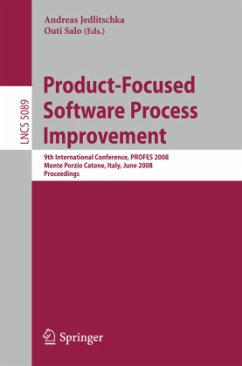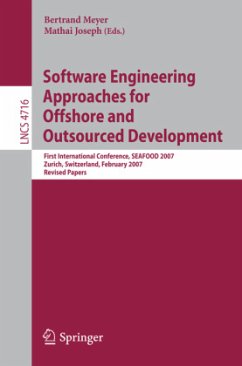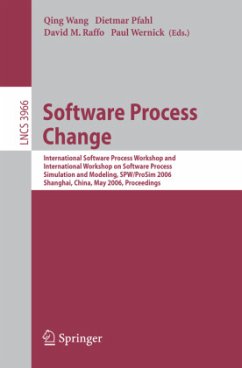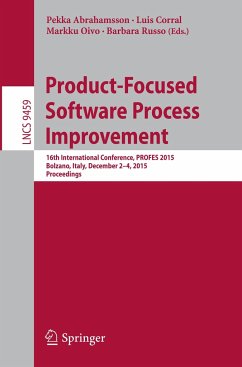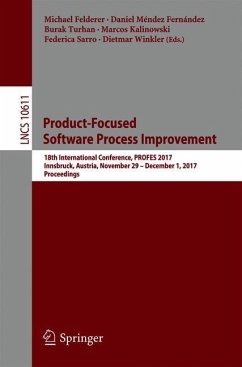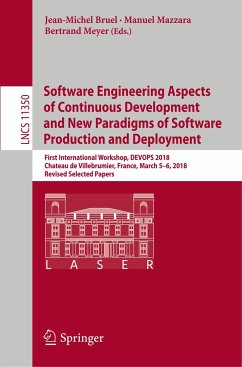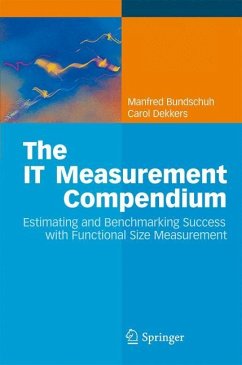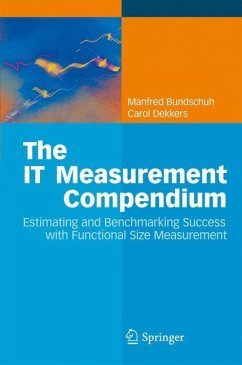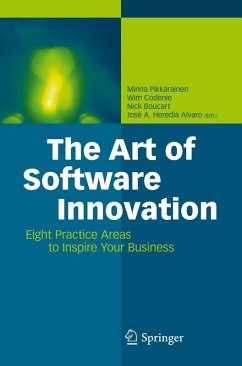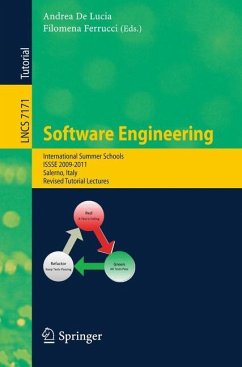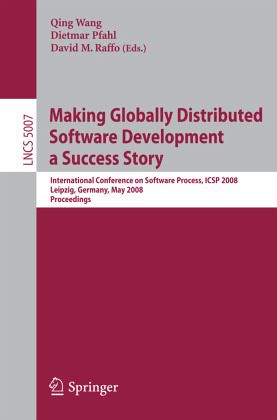
Making Globally Distributed Software Development a Success Story
International Conference on Software Process, ICSP 2008 Leipzig, Germany, May 10-11, 2008, Proceedings
Herausgegeben: Wang, Qing; Pfahl, Dietmar; Raffo, David

PAYBACK Punkte
19 °P sammeln!
This volume contains papers presented at the International Conference on Software Process (ICSP 2008) held in Leipzig, Germany, during May 10-11, 2008. ICSP 2008 was the second conference of the ICSP series. The theme of ICSP 2008 was "Making Globally Distributed Software Development a Success Story. " Software developers work in a dynamic context of frequently changing technologies and with limited resources. Globally distributed development teams are under ev- increasing pressure to deliver their products more quickly and with higher levels of qu- ity. At the same time, global competition is...
This volume contains papers presented at the International Conference on Software Process (ICSP 2008) held in Leipzig, Germany, during May 10-11, 2008. ICSP 2008 was the second conference of the ICSP series. The theme of ICSP 2008 was "Making Globally Distributed Software Development a Success Story. " Software developers work in a dynamic context of frequently changing technologies and with limited resources. Globally distributed development teams are under ev- increasing pressure to deliver their products more quickly and with higher levels of qu- ity. At the same time, global competition is forcing software development organizations to cut costs by rationalizing processes, outsourcing part of or all development activities, reusing existing software in new or modified applications, and evolving existing systems to meet new needs, while still minimizing the risk of projects failing to deliver. To address these difficulties, new and modified processes are emerging, including agile methods and plan-based product line development. Open Source, COTS, and com- nity-developed software are becoming more and more popular. Outsourcing coupled with 24/7 development demands well-defined processes to support the coordination of organizationally-and geographically-separated teams. The accepted papers present completed research or advanced work-in-progress in all areas of software and systems development process including: agile software pr- esses, CMMI, novel techniques for software process representation and analysis; process tools and metrics; and the simulation and modeling of software processes. Contributions reflecting real-world experience, or derived directly from industrial or open-source software development and evolution, were particularly welcome.





